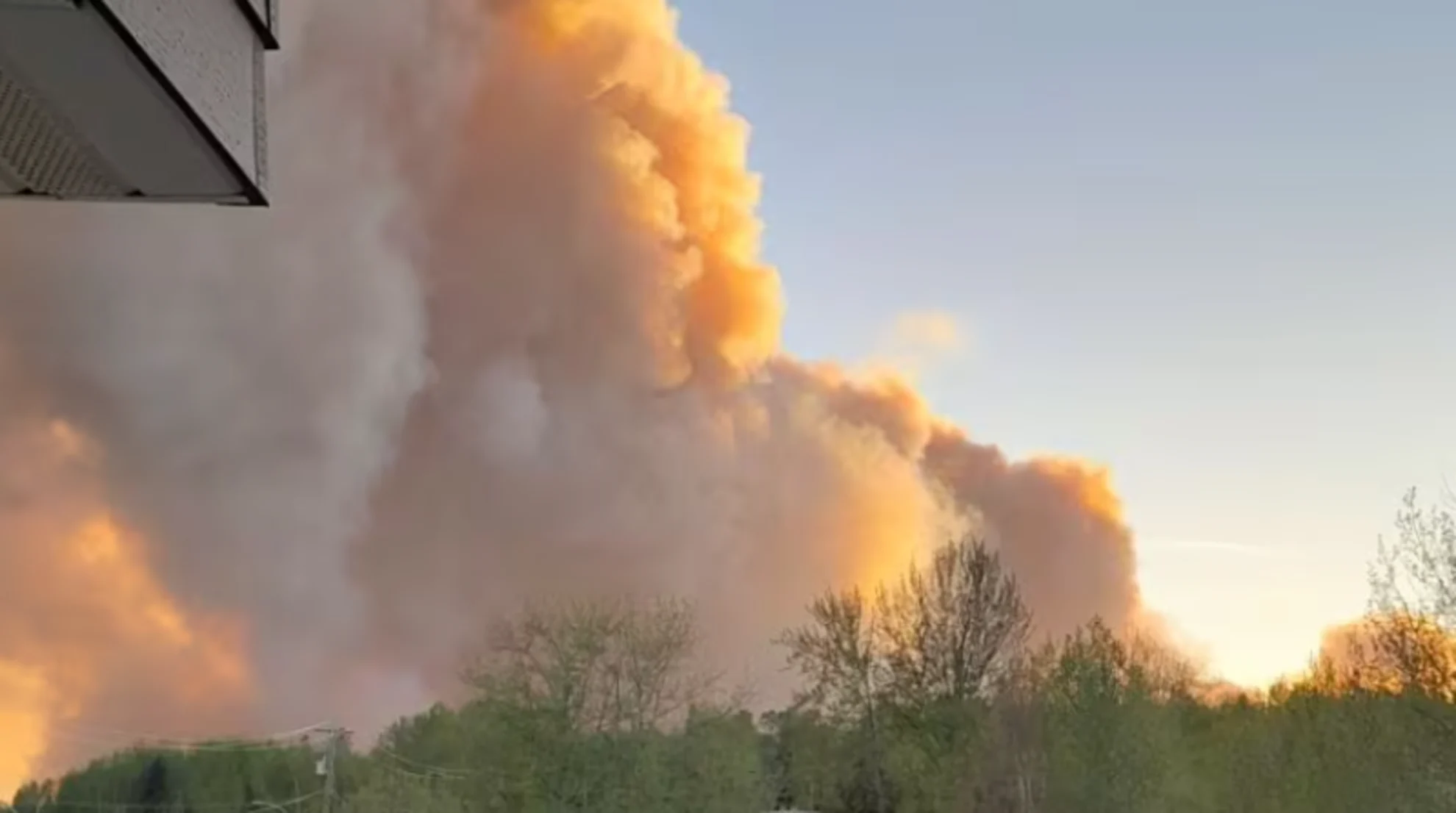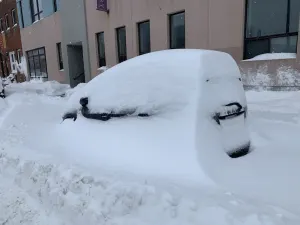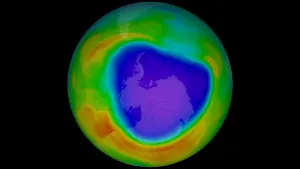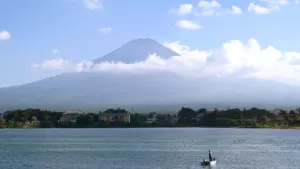
All eyes on weather as fires burn west and north of Fort Nelson
Weather conditions are expected to play a crucial role on Wednesday as firefighters continue to battle a wildfire west of Fort Nelson in B.C.'s northeast.
Since Monday, crews battling flames west of the town have had more "favourable conditions" on their side and Wednesday brings a chance of rain, but the province's wildfire service says the region is far from safe.
The Parker Lake wildfire was burning over an area of approximately 84 square kilometres as of 9 p.m. MT on Tuesday, with part of its perimeter 2.5 kilometres from Fort Nelson.
Its rapid growth on Friday caused more than 4,700 people to leave the community and the nearby Fort Nelson First Nation just hours after it was sparked about nine kilometres west of town.
CANADA'S WILDFIRES: Visit The Weather Network's wildfire hub to keep up with the latest on the active start to wildfire season across Canada.
While the blaze moved south and away from the community on Tuesday, things could change rapidly as unsettled weather is forecast for the region, the B.C. Wildfire Service (BCWS) warned.
There is also increasing concern about the Patry Creek fire, a holdover fire from 2023 that has grown significantly after reigniting earlier this year.
In a video update posted 10 p.m Tuesday, BCWS fire behaviour specialist Ben Boghean said the fire had experienced an "aggressive rate of spread" through Monday into Tuesday, bringing it to 25 kilometres north of Fort Nelson.
The fire was measured at around 465 square kilometres as of Tuesday evening and had been upgraded to a wildfire of note, defined by the service as a fire that is "highly visible" or poses "a potential threat to public safety."
Boghean said as of 5 p.m. Tuesday, the fire did not pose a risk to Fort Nelson but warned "that can rapidly change if the area receives strong northerly winds and continuous dry conditions."
"Although these conditions are favourable for the short term, the threat of extreme fire behaviour returning to the region will remain," he said.
Crews have been dousing water on homes and buildings along the Old Alaska Highway and near McConaughey Creek Road, and are also looking at planned ignitions to reduce available fuel in the area, according to Kevin Dalgarno, structure branch director for the BCWS incident management team in the region.
He said the favourable conditions have meant wildfire fighters didn't need to work through the night on Tuesday, but they are trying to use the period of relative calm to prepare.
"[On Wednesday] the weather is going to be very supportive of our plan and with that we're gonna try to move ahead and get ready for the next weather event," said Dalgarno.
Fluid situation
Premier David Eby told reporters on Tuesday that the situation was still very fluid, and very dependent on weather conditions in B.C.'s parched northeast.

The BCWS and Rob Fraser, the mayor of the Northern Rockies Regional Municipality (NRRM), which includes Fort Nelson, had both warned last weekend that the fire could have hit the community if winds pushed it eastward — but those anticipated winds ultimately did not come to pass.
"If we can get to Wednesday or Thursday, where there's predictions of rain, we're going to really be able to corral this thing," Fraser said in an update around 9 p.m. MT on Tuesday.
Environment Canada says a low pressure system will bring up to 20 millimetres of rain, and possibly thunderstorms, to the area near Fort Nelson on Wednesday — but warns that most of the precipitation may likely lie south of Fort Nelson.

The west flank of the Parker Lake fire near Fort Nelson, B.C., is pictured on Monday afternoon. (B.C. Wildfire Service)
Fort Nelson is located around 1,000 kilometres north of Vancouver and around 800 kilometres northwest of Edmonton.
Some evacuees in Fort St. John told to leave
The forecasts that winds could blow the fire closer to Fort Nelson came as sobering news to the thousands of evacuees who are spread across northeast B.C., with more than 1,000 of them in Fort St. John.
SEE ALSO: Essential items for your emergency "grab-and-go" kit
"The wind didn't blow the way [it] was supposed to," evacuee Doug Park told CBC News on Tuesday. "Yesterday, they figured by 6:30 there might not have been a Fort Nelson anymore."
"... I'm really hoping we get the rain because it would help."
Eby said Tuesday afternoon that no homes have yet been lost to the fire. Fraser later said that firefighters have been so focused on fighting the blaze they have not yet been able to assess any impact on structures.
"It's just not safe for people to come back yet. The worst could still happen," Fraser said. "We're not out of the woods."
Evacuees from Fort Nelson were initially directed to Fort St. John, about 380 kilometres southeast by road.
That city is also receiving evacuees from the nearby Doig River First Nation after they were ordered to leave their homes Monday due to a wildfire spreading near the community.
As a result, hotels in the city are nearly full — and some evacuees have been told to leave as hotels look to honour pre-made bookings.
Those who are able have been encouraged to head to nearby Dawson Creek or Chetwynd, or travel farther to Prince George, about another 440 kilometres south by road.

B.C. is experiencing a record-low snowpack and drought has plagued much of the province — especially northeast B.C. — for months. Data from the B.C. River Forecast Centre predicts a long, dry fire season.
Smoke raises health risks for some
Meanwhile. Environment Canada has posted notices for parts of B.C., Alberta, Saskatchewan and the Northwest Territories warning about wildfire smoke.
Forecasters say the fine particles in smoke pose health risks and are more likely to affect seniors, pregnant women, people who smoke, infants and young children, as well as those with chronic illnesses.
"Those who are more likely to be impacted should reduce or reschedule strenuous activities outdoors or seek medical attention if experiencing symptoms," the notices say.
This article was originally published for CBC News on Wednesday, May 15. With files from Michelle Ghoussoub, Akshay Kulkarni, Andrew Kurjata, Moira Wyton, The Canadian Press









